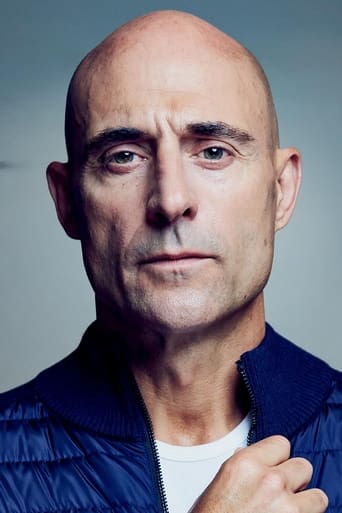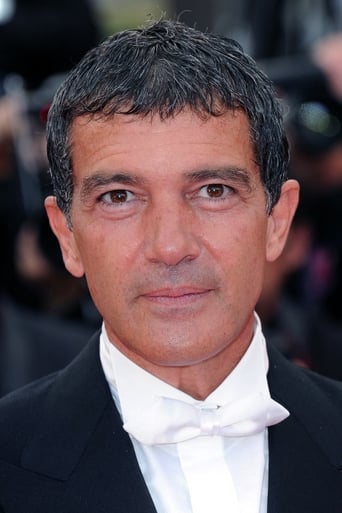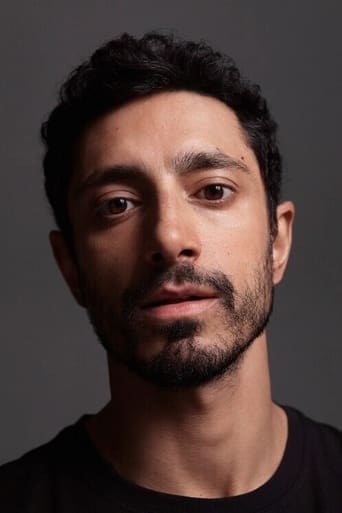Mjeteconer
Just perfect...
Spidersecu
Don't Believe the Hype
Neive Bellamy
Excellent and certainly provocative... If nothing else, the film is a real conversation starter.
Edwin
The storyline feels a little thin and moth-eaten in parts but this sequel is plenty of fun.
eddie_baggins
Jean-Jacques Annuad's wannabe epic The Day of the Falcon (also known as Black Gold) feature's some of the most bizarre and downright idiotic casting choices ever committed to celluloid and due to this ruins any chance the movie had at being a sweeping tale of love, family and war in the barren lands of early nineteenth century Arabia.The Day of the Falcon is a suitably large scale looking film with a huge budget handed to it by its Saudi Arabian backers but money must have been thrown in the majority at its world spanning cast who look like lost souls in a movie that would've been much more suited casting locals as to not distract from what is essentially a ripe storyline. A Prophet breakout star Tahar Rahim fairs best in the cast but from him it's all horribly downhill. We have a Spaniard (Banderas), a cockney Englishman (Strong) and a clearly Indian (Pinto) filling out the cast of natives. No amount of makeup or costume design can hide the fact that these people are in no way shape or form from this country which really is insulting to both the story and the audiences. These casting mistakes are made all the more hard to swallow when Annaud's film showcases select scenes that make one think they are watching a better movie.Annuad has shown promise behind the camera before with Enemy at the Gates one of the more enjoyable guilty pleasures of the last decade or so and here again proves to have a good eye for the large scale detail, but within the film those scenes are few and far between with a seemingly intense finale playing out far too quickly and characters never truly making a mark on the audience. The film certainly looks pretty in a sandy type of way and the period of history in which the film takes place makes it a more intriguing prospect than it deserves to be but that's in no way a selling point.Day of the Falcon was an almighty flop the world over and a film that has rightfully been passed over by many film lover. It's good to see up and coming actor Tahir Rahim take lead in a picture of this scale and he is a shining light in an otherwise pointless movie that proves to those in the business that casting name actors at the expense of believability is a big mistake.1 and a half miscast foreign actors out of 5 For more movie reviews and opinions check out - www.jordanandeddie.wordpress.com
alan-51-111974
Antonio Banderas playing an Arab? This has to be a mistake.The main thing this movie does is to confuse you as to what era you're in, it starts off cheesy Hollywood, then moves into Lawrence of Arabia, then Dune, then confounds most of the rules of Hollywood cinema and creates something different.It drew me in, I couldn't help it, I literally sat on the edge of my seat (literally means I actually did it).It's a pseudo-history romp through the desert, it's a coming of age story and there's a bit of romance.It's more true to how history generally unfolds than most movies and I feel it's more true to how people really feel and act.I thought I knew what would happen at some points but I was time and again proved wrong.It's a strange cocktail of genius, I loved it, so I'm not going to review it technically, there's no point.
Claudio Carvalho
In the beginning of the Twentieth Century, in Arabia, Emir Nesib (Antonio Banderas) of Hobeika defeats Sultan Amar (Mark Strong) of Salma after years of war between their tribes and they make a peace treaty creating "The Yellow Belt", a large no man's land that would separate their lands and would not belong to neither of them. Further, Nesib demands the sons of Amar, Saleh and Auda, to be raised together with his children Tarik and Leyla by him in Hobeika as a guarantee of their agreement. Fifteen years later, representatives of the Texas Oil find oil in the Yellow Belt and the modern and liberal Emir Nesib sees the opportunity to improve and modernize the life of his tribe, building hospitals and schools, and the American Company begins the exploitation of the oil field, violating the peace pact.Nasib sends a representative to make an agreement with the fundamentalist Sultan Amar, but he does not accept the offer. Saleh decides to travel to Salma to talk to his father and kills his two companions, but he is captured and murdered by Tarik. Prince Auda (Tahar Rahim) and Princess Leyla (Freida Pinto) are in love with each other since they were children and they get married with the full permission of Nesib. Auda travels to Salma expecting to convince his father to associate to Nesib, but the conservative Amar does not accept the proposal and decides to fight against Nesib. Now, Prince Auda shall decide in which side he will pick and fight. "Black Gold" is another wonderful epic adventure by the French director Jean-Jacques Annaud with a great international cast and wonderful cinematography in an environment of "Lawrence of Arabia". The story is entertaining, the soundtrack is very beautiful and the DVD has magnificent Extras showing the Making Of and the Special Effects. My vote is eight.Title (Brazil): "O Príncipe do Deserto" ("The Prince of the Desert")
unbrokenmetal
They don't make many movies like this anymore, it felt like somebody had discovered a lost gem from the 1970s, with real extras, real horses and real camels instead of the soulless computer copies of todays CGI productions. I loved it! Also the story remained interesting, when the Prince has a difficult decision to make whose side he'll be on.The story apparently is not precisely following actual historical events, but takes the liberty of creating a world of the 1930s like it could have been. No maps are shown on the screen to show which army moves where, because it is the general feeling of a changing world that matters, the struggle between different attitudes, not the history lesson. I do not know why this artistic freedom is making some viewers complain. Hundreds of western movies described battles between soldiers and Indians which were only vaguely similar to actual history, so I don't think this discussion is necessary. "Black Gold" is an adventure movie, first of all. Actually, the makers balance very well between the entertainment value and ambitions beyond that, neither too heavy nor too light. A good compromise was found between a commercial approach and content that has something to say. When the oil flows over the ground, useless like a pond of black ink, one wonders: is it worth all that fighting? One review here said 'the director made a mistake, there is no pipeline', which proves that the poetry of pictures is really lost on some people. Anyway. The makers, supported by the Emirate of Qatar, succeeded in putting the Arabs in the focus, and if the American guy from Texas Oil remains a cartoon character with a silly hat, it's hardly an accident. Best actors to me were Tahar Rahim as Prince Auda and Mark Strong as Amar, his father. Antonio Banderas, however, had a license for staring, it seems. Any time he has got a close-up without much to say: yes, he stares in an interesting way. The director could have told him him not to overdo it, but I guess it's easier said than done.







